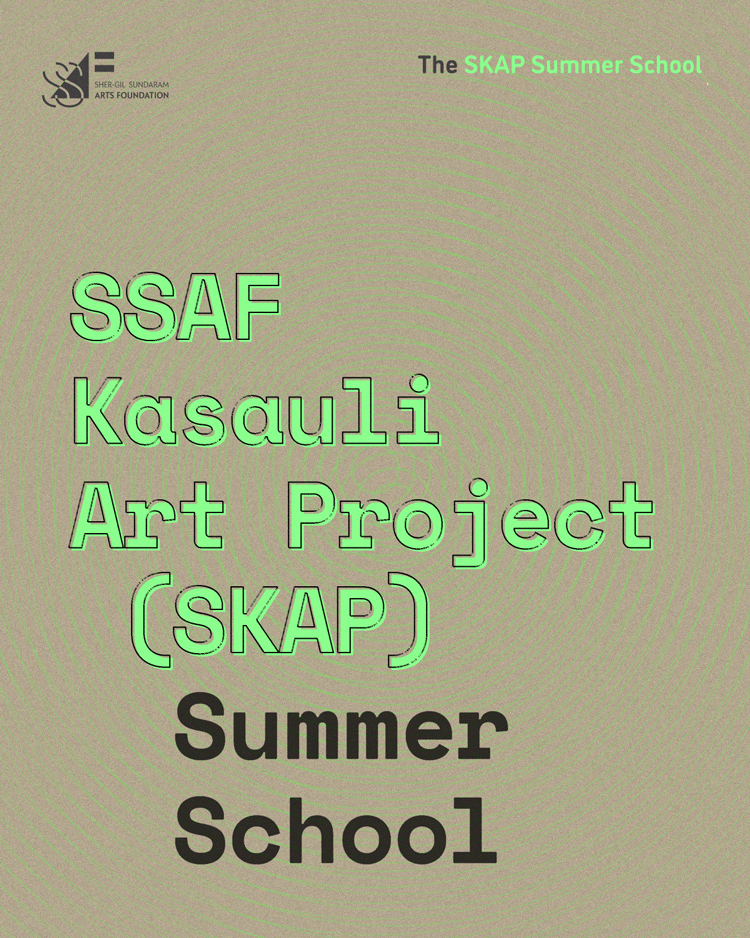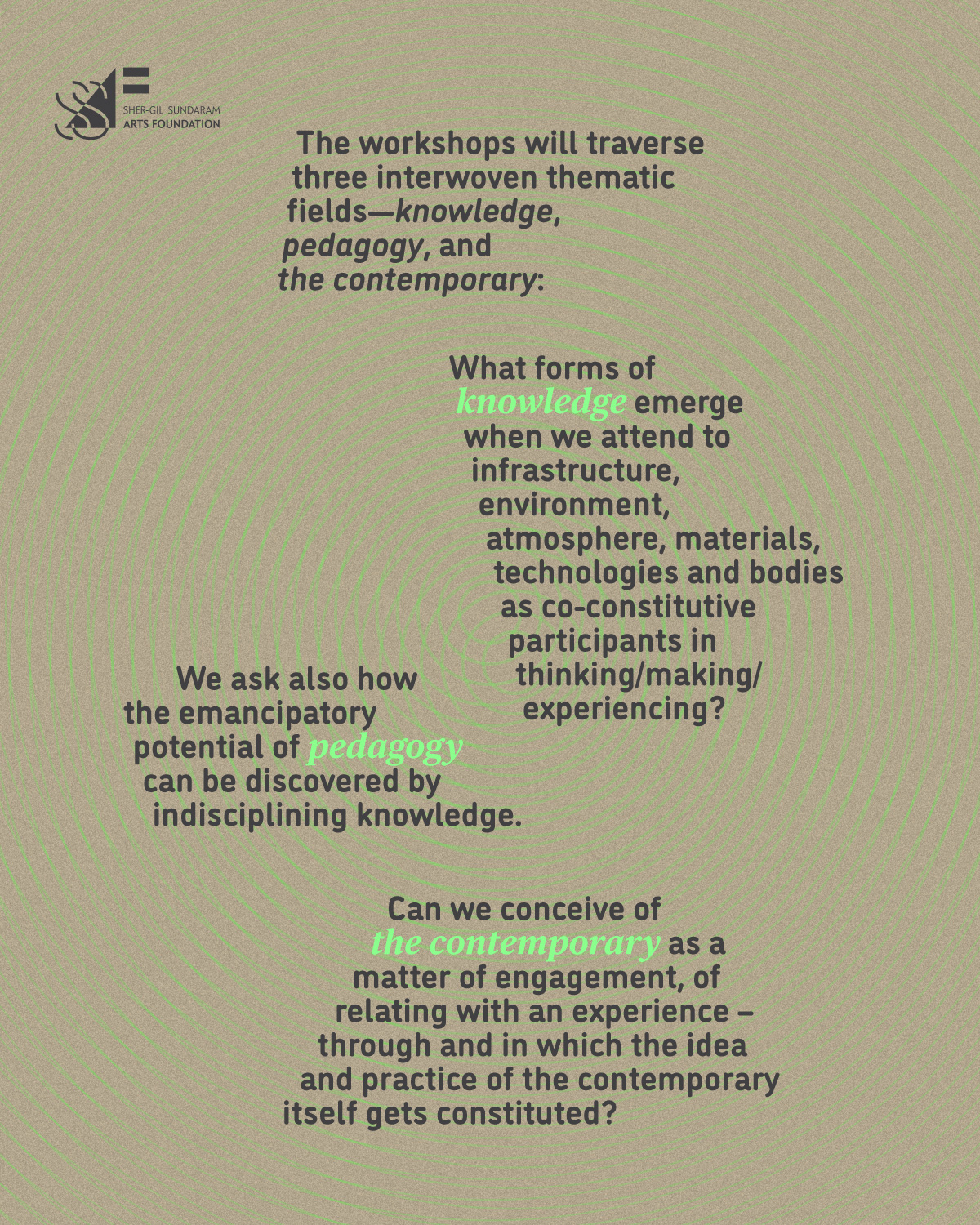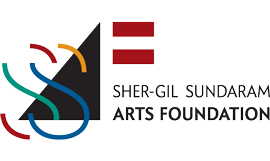The SSAF Kasauli Art Project (SKAP) is a programme of the Sher-Gil Sundaram Arts Foundation, located at the site of the Kasauli Art Centre established by Vivan Sundaram at his family home. From 1976 to 1991, Kasauli Art Centre regularly organized artists’ workshops, seminars, performances, film screenings and other arts-related events that were among the first of their kind in the country. In 2016, with the setting up of SSAF, Vivan proposed that the locale and setting be re-invented as SKAP, with renewed infrastructure and a cross-disciplinary programme that focuses on discursive and process-oriented workshops, discussions, and experiments in performance and theatre-making.


The SKAP Summer School aims to explore new forms of conceiving artistic, social, pedagogical, and critical practice in our times. It will bring together facilitators and participants in residential workshops that act as sites of combustion, where materials, questions and modes of engagement chafe against one another to ignite ways of understanding that transcend disciplinary and domain boundaries.
The workshops will traverse three interwoven thematic fields: knowledge, pedagogy, and the contemporary.
What is at stake when we evoke the word knowledge? Is it an archive of the already-known or can it be understood as something enacted – emerging in an encounter between histories, materials, and practices? Can we imagine knowledge not as an accumulation of stable facts, but as something partial, contingent, untimely, and continuously re-assembled? We will ask what forms of knowledge emerge when we attend to infrastructure, environment, atmosphere, technologies, and bodies as co-constitutive participants in thinking/making/experiencing.
The workshops are premised on a refusal to see pedagogy as reform, but to see it instead as rupture – as a way of putting together something that is unanticipated. As a poetic and political operation that moves not towards consensus or legibility, but towards collective composition, uncertainty, and shared opacity. We ask also how the emancipatory potential of pedagogy can be discovered by indisciplining knowledge.
What constitutes the contemporary? Is the contemporary merely a matter of being ‘in the present’? Is it purely, or even predominantly, related to temporality – in which case, is there anything that can be termed as un/non-contemporary? Or, can we conceive of the contemporary as a matter of engagement, of relating with an experience – through and in which the idea and practice of the contemporary itself gets constituted? How do we develop ways and vocabularies that can help in constructing/understanding/articulating that engagement?
SKAP Summer School Participants
- There is no single model of the participant: you might be an artist or practitioner, a student, a critic or writer, a curator, a bricoleur, a flaneur, a theorist or anything in-between.
- There is no upper age limit. Participants from across generations and experiences are invited to apply.
- There is no requirement of prior disciplinary affiliation. In fact, those working between and beyond disciplines will find themselves most at home.
- Participants are not ‘learners’ but co-conspirators; those who arrive with their own urgencies, obsessions, their own discomforts, their own need to ask differently.


